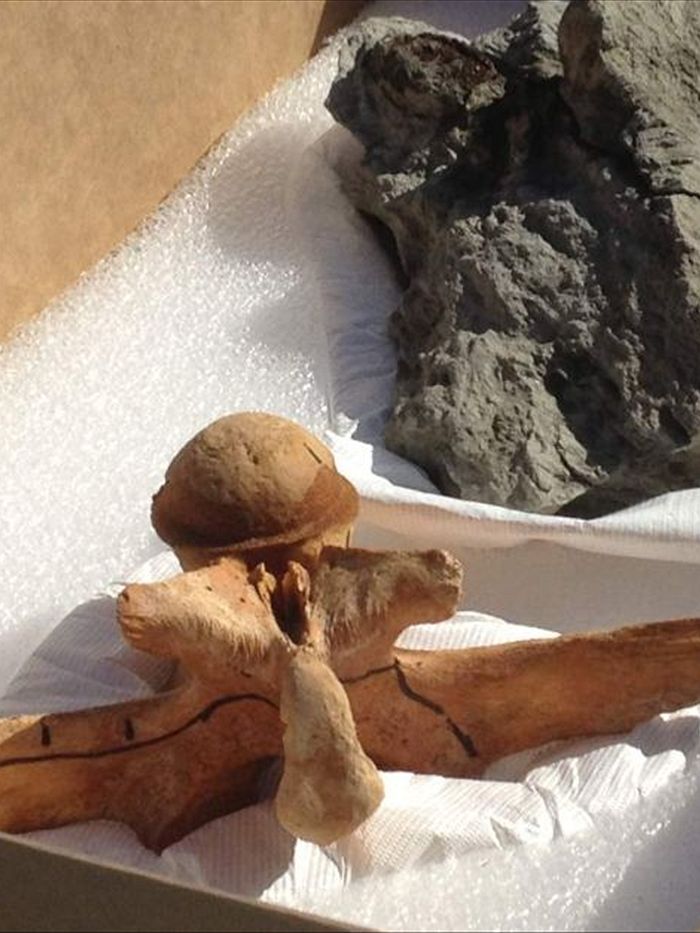Worksite boned by dino-discovery
 Researchers have been called in to the site of some roadworks in Queensland, after workers uncovered fossilised crocodiles, fish, shells and plants dating back about 50 million years.
Researchers have been called in to the site of some roadworks in Queensland, after workers uncovered fossilised crocodiles, fish, shells and plants dating back about 50 million years.
The fossils were found during construction of a new rail crossing in the Brisbane suburb of Geebung, buried in a layer of shale oil created by decaying organic matter over millions of years.
The find has been called both unusual and significant by the CEO of the Queensland Museum, Professor Suzanne Miller; “We called in our palaeontologist, who had a look and got extremely excited about the material... it's very unusual to find materials being uncovered in these urban sites. I mean, most discoveries of this nature are found miles from anywhere."
The fossils are unusual partly because of their era; they date from the Eocene epoch 56 to 33 million years ago (15 million years after the major extinction of the dinosaurs), a time from which very few remains have been found.
Prof Miller says “very small things tended to survive and this is one of those sites that's showing us all these smaller animals that co-existed in one place in one habitat at the same time, just after the massive extinction that wiped out a vast amount of life on the planet... it's quite a bit before the time of the famous Australian megafauna, where you have the giant kangaroos and so on. It's a bit of a missing link in the geological and fossil history, not just of Australia but within the world."
The Queensland Museum must now undertake the tedious task of sifting through five tonnes of soil, they are calling out for community volunteers to help. Anybody interested should visit the Museum’s website.







 Print
Print